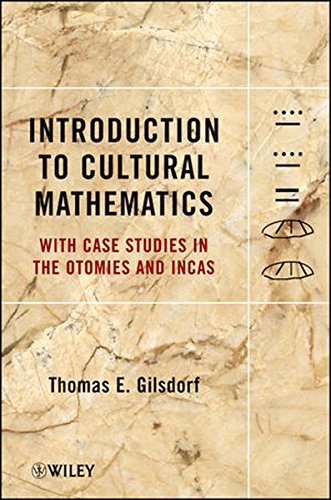

Most ebook files are in PDF format, so you can easily read them using various software such as Foxit Reader or directly on the Google Chrome browser.
Some ebook files are released by publishers in other formats such as .awz, .mobi, .epub, .fb2, etc. You may need to install specific software to read these formats on mobile/PC, such as Calibre.
Please read the tutorial at this link: https://ebookbell.com/faq
We offer FREE conversion to the popular formats you request; however, this may take some time. Therefore, right after payment, please email us, and we will try to provide the service as quickly as possible.
For some exceptional file formats or broken links (if any), please refrain from opening any disputes. Instead, email us first, and we will try to assist within a maximum of 6 hours.
EbookBell Team

4.8
44 reviewsCultural mathematics, or ethnomathematics as it is also known, studies the relationship between mathematics and culture—with the ultimate goal of contributing to an appreciation of the connection between the two. Introduction to Cultural Mathematics: With Case Studies in the Otomies and Incas integrates both theoretical and applied aspects of the topic, promotes discussions on the development of mathematical concepts, and provides a comprehensive reference for teaching and learning about multicultural mathematical practices.
This illuminating book provides a nontraditional, evidence-based approach to mathematics that promotes diversity and respect for cultural heritages. Part One covers such major concepts as cultural aspects of mathematics, numeration and number symbols, kinship relations, art and decoration, games, divination, and calendars. Part Two takes those concepts and applies them to fascinating case studies of both the Otomies of Central Mexico and the Incas of South America.
Throughout the book, numerous illustrations, examples, and motivational questions promote an interactive understanding of the topic. Each chapter begins with questions that encourage a cooperative, inquiry-based approach to learning and concludes with a series of exercises that allow readers to test their understanding of the presented material.
Introduction to Cultural Mathematics is an ideal book for courses on cultural mathematics, the history of mathematics, and cultural studies. The book is also a valuable resource and reference for anyone interested in the connections between mathematics, culture, anthropology, and history.